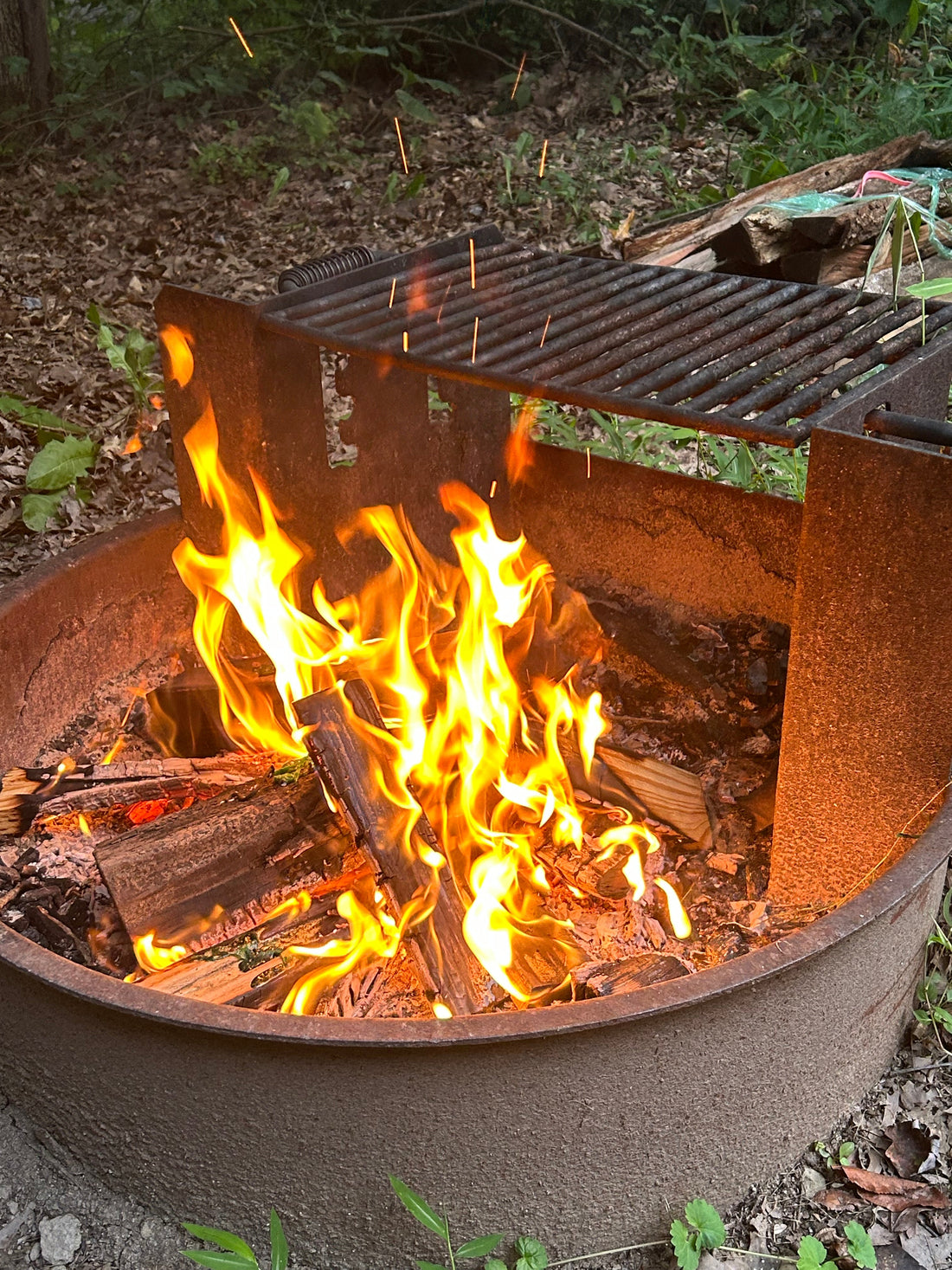
The Vital Importance of Primitive Lifestyles, Nature, and Digital Detox in 2025
Share
The Modern Dilemma: A Disconnect from Nature and Ourselves
In 2025, we find ourselves living in an era of unprecedented technological advancement. Our lives are intricately woven with the digital world, from the moment we wake up to the instant we fall asleep. While the internet and screens offer undeniable convenience and connection, they also present a growing disconnect from something profoundly fundamental: our primitive roots and the natural world. This article explores why embracing a primitive lifestyle, even in small doses, and significantly reducing screen time is not just a trend, but a vital necessity for our well-being and the health of our planet.
Rediscovering Primitive Skills: More Than Just a Nostalgic Whim
The concept of a "primitive lifestyle" often conjures images of our ancestors living in harmony with nature, relying on their innate skills for survival. While we may not need to build our own shelters or hunt for our food daily, exploring these skills offers profound benefits:
- Enhanced Problem-Solving: Primitive skills, such as fire-making, shelter-building, or foraging, demand ingenuity and resourcefulness. They train our brains to think critically and adapt to challenges in a hands-on, tangible way.
- Deeper Connection to the Environment: Understanding how to identify edible plants, track animals, or read the weather fosters an intimate relationship with nature. This knowledge cultivates respect and a sense of stewardship for the natural world.
- Increased Self-Reliance and Confidence: Mastering basic survival techniques builds incredible self-confidence. Knowing you can provide for yourself in a fundamental way is empowering and can translate to greater resilience in all aspects of life.
- Mindfulness and Presence: These activities inherently require focus and presence. There's no room for digital distractions when you're trying to start a fire with friction or find clean water. This cultivates a deep sense of mindfulness.
- Physical Fitness: Engaging in activities like hiking, chopping wood, or setting up camp is excellent physical exercise, often engaging muscle groups not typically used in sedentary modern life.
The Healing Power of Nature: Nature's Prescription for the Modern Soul
Nature has always been our greatest healer, and its importance has never been more apparent than in our screen-saturated lives. Spending time in natural environments offers a powerful antidote to the stresses of modern living:
- Stress Reduction: Studies have consistently shown that spending time in nature lowers cortisol levels, reduces blood pressure, and alleviates symptoms of anxiety and depression. The sights, sounds, and smells of the natural world have a calming and restorative effect.
- Improved Cognitive Function: Nature can boost creativity, improve focus, and enhance problem-solving abilities. The restorative effects of natural environments allow our brains to recover from mental fatigue.
- Boosted Immunity: Exposure to the natural world, including beneficial microbes found in soil and plants, can strengthen our immune systems.
- Enhanced Mood and Well-being: Sunlight exposure helps regulate our circadian rhythms and boosts vitamin D production, leading to improved mood and overall happiness.
- Fostering Appreciation: Observing the intricate beauty and resilience of the natural world cultivates a profound sense of awe and appreciation for life itself.
The Digital Deluge: Reclaiming Our Time from Screens and the Internet
Our constant engagement with screens and the internet, while offering benefits, also comes at a significant cost. The average person now spends hours each day online, leading to:
- Information Overload and Mental Fatigue: The sheer volume of information we consume online can be overwhelming, leading to decreased attention spans and mental exhaustion.
- Sleep Disturbances: The blue light emitted from screens can disrupt our natural sleep cycles, making it harder to fall asleep and reducing the quality of our sleep.
- Social Comparison and Anxiety: Social media often presents curated, idealized versions of reality, leading to feelings of inadequacy, envy, and anxiety.
- Sedentary Lifestyle: Excessive screen time often correlates with a lack of physical activity, contributing to various health problems.
- Reduced Real-World Connection: While online connections are valuable, an over-reliance on them can detract from the depth and richness of in-person interactions.
Integrating Primitive Principles and Nature into a Modern Life
The goal isn't necessarily to abandon modern life entirely, but to find a healthier balance. Here's how you can integrate more primitive principles and nature into your routine:
- Schedule Digital Detox Periods: Designate specific times each day or week where you intentionally disconnect from all screens and the internet.
- Embrace Outdoor Activities: Make hiking, camping, gardening, or even just a daily walk in a park a non-negotiable part of your routine.
- Learn a Primitive Skill: Start small. Try building a campfire, identifying local edible plants (using proper research and tools for your safety), or learning basic knot-tying.
- Mindful Technology Use: Be intentional about your screen time. Ask yourself if the activity serves a genuine purpose or if it's just a way to pass the time.
- Create a Tech-Free Zone: Designate areas in your home, like the bedroom, as screen-free zones to improve sleep quality and encourage other activities.
- Prioritize Real-World Experiences: Opt for in-person interactions, community events, and activities that get you out and about.
Conclusion: A Path Towards a More Grounded and Fulfilling Existence
In 2025, as technology continues to advance at an astonishing pace, the importance of stepping back, reconnecting with nature, and reclaiming our time from the digital world has never been more critical. By exploring primitive skills, immersing ourselves in the natural world, and consciously reducing our screen time, we can cultivate a more grounded, resilient, and fulfilling existence. It's a journey of rediscovery, a path back to our essential selves, and a vital step towards a healthier future for both ourselves and the planet.
